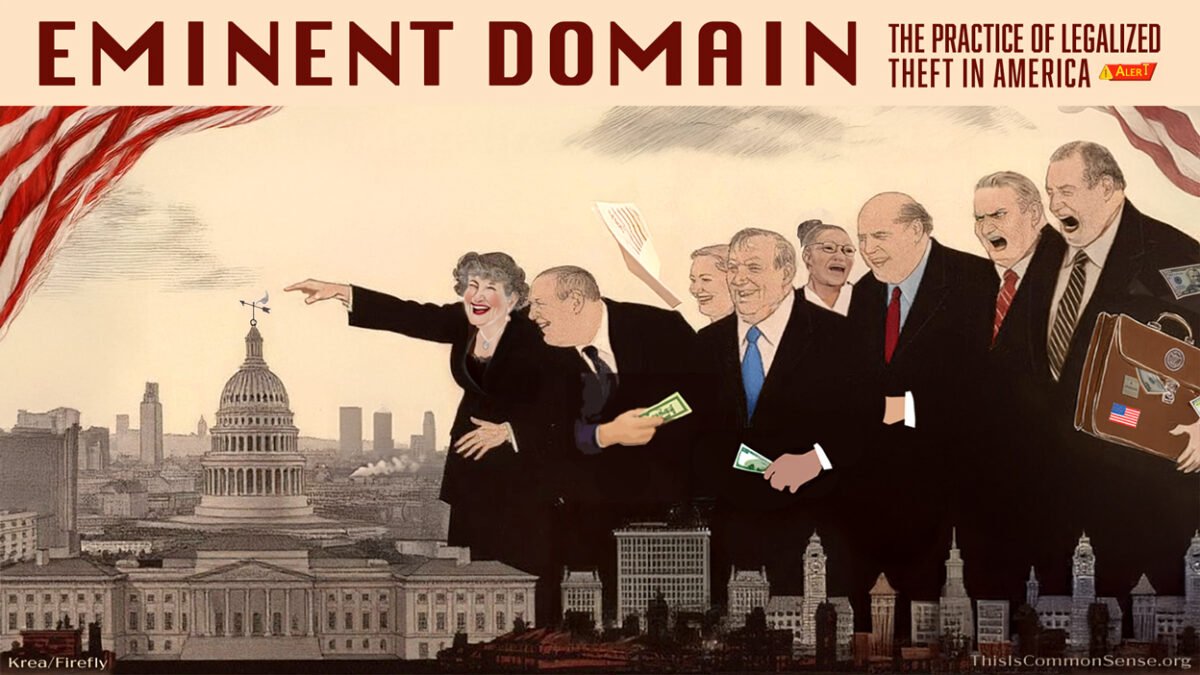“On March 24, 2025, the Supreme Court of the United States declined to take up the case of Bowers Development, LLC. v. Oneida County Industrial Development Agency Et. Al.,” writes Conner Drigotas, “a decision that allows the practice of legalized theft through eminent domain to continue throughout America.”
This is not good news, as Mr. Drigotas explains. “In that case, Bryan Bowers had asked the Justices to review a ruling from the Supreme Court of New York that allowed Utica city officials to take land on which he had a contract to build and give it to a different private corporation for a separate construction project.” Mr. Bowers had “hoped to stop government officials from using force to pick winners and losers in the construction industry.” But it was a no go.
Politicians and bureaucrats love to grab other people’s property, under cover of “the public interest.” But their “public interest” is nothing more than a thin disguise for helping some individuals (often contributors to politicians’ campaigns) at the expense of others.
“With their denial of Bowers, Justices continued to show support for one of the most hated and notorious decisions to come out of their lofty chambers: that of Susette Kelo v. New London, Connecticut,” explains Drigotas. The Kelo case, often mentioned here, remains the ruling precedent, the government’s license to steal. Its loose construction of what can be regarded as in “the public interest” is a big part of the problem.
Sadly, the courts have so far refused to rein in government eminent domain abuse. And voters have little sway upon the judiciary. And our representatives, our first line of defense, have also declined to stand up for basic justice and decency.
What to do? Remember that your representatives will soon be on the ballot.
This is Common Sense. I’m Paul Jacob.
Illustration created with Krea and Firefly
See all recent commentary
(simplified and organized)
See recent popular posts




